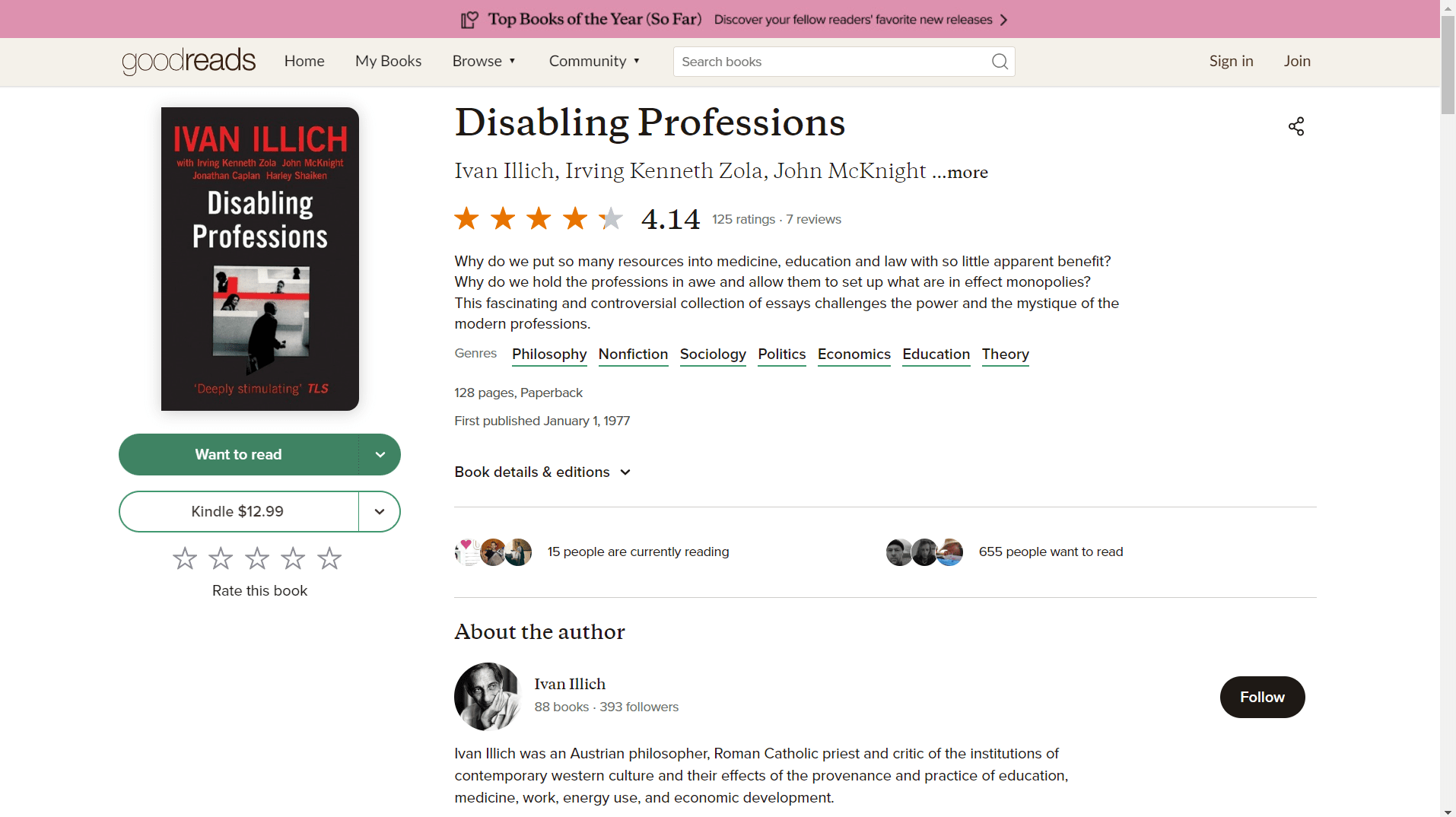Another friend of mine pointed out the many policy overreaches made and that “Learning has been devalued by those in charge for decades. e.g. university as just the acquisition of job tickets. And assignments that reward end products not learning.” My friend, who I consider as one of the best community educators in theology and spirituality, commented on the impossible (as in for learning) assessment programs that the fool policy-makers (not all policy-makers are fools) have given teachers (and still stronger in the language: command teachers) .
Just over 50 years ago, the intellectual — yes, the intellectual — Ivan Illich was saying the same thing. Indeed, his was the original thesis, and now as disabled professionals we understand.
The question is how do we break the “willful ignorance” type of silence of the policy-makers who continue to put us into this situation.
On Thursday 4th July, at the Australian Historical Association, at the session on “Histories of Teaching and Teachers,” I will be presenting the paper, Rethinking School: Historical Forgetfulness and Educationalist Theory 1971–89. On the same day I will be chairing a session called, “Teaching and Doing History in a Digital Age.”
Here, I have been following the contemporary global theoretical thinking, from “Quentin Skinner and J. G. A. Pocock, theorists of the ‘new’ history of political thought” (Bruno-Jofré, 2014b; 2024, xv), and “Bruno-Jofré, [who] recently wrote that for many, the linguistic and cultural turn ran their course, and that a look back at what has been valuable, in order to move ahead in a prospective approach…”, as well as “David Armitage (2012), ‘iterations of the same idea turn out to be distinct conception in need of disaggregation rather than assimilation into broader narrative over time or across space’ (p. 29).”
The paper is home truth for Queensland schools. Academic leadership in education had, not only forgot the theories of schooling in era of critical theory (e.g. Habermas 1991a-b, 1992, 1997, 2010; Giroux 1981, 1983, 1985, 1991; etc.), from frameworks of Ivan Illich and Paulo Freire, too many academic leaders do not know how they have got to the States of Affair in the present time. The explanation for the spiraling and networking presentism comes in models of Randall Collins, in his The Sociology of Philosophies: A Global Theory of Intellectual Change (The Belnap Press of Harvard University Press, 1998).
Kind regards,
Neville.
Featured Image: The goodreads site

Neville Buch
Latest posts by Neville Buch (see all)
- Merry Christmas. A Gift Article for you, A Christmas Carol - December 25, 2024
- Dear grossly, ethically, corrupted - December 21, 2024
- Thoughts with a Professional History colleague on “Artificial Intelligence” - December 21, 2024
